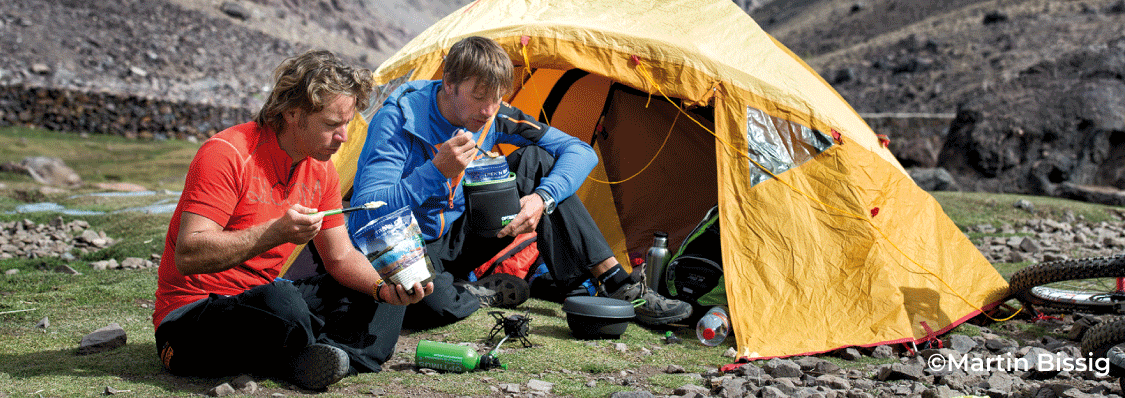Spinach and walnut fusilli

Free delivery on purchases of €70 or more to relay points in Europe
Enjoy -10% on the Backpacking Food Category with the code: TREKKING10
It's no secret that nutrition plays a crucial role in hiking. Proper meal planning not only provides the necessary energy to keep going but also helps with recovery after exertion. When following a vegetarian diet, it is essential to ensure a balanced intake of nutrients. Fortunately, many options allow you to combine hiking with a vegetarian diet. Whether you prefer to prepare your meals in advance or look for easy-to-carry solutions, here are some ideas and tips for a successful hike.

A meal suitable for hiking must meet several essential criteria to ensure balanced nutrition and provide the necessary energy.
Here are some simple and nutritious recipes to prepare before or during your trek.
Snacks are essential to avoid energy slumps and maintain strength throughout the day. Here are some practical and nutritious options:
For vegetarian hikers looking for convenience and optimal nutrition, freeze-dried meals are an ideal solution. These meals retain the nutritional and taste qualities of food while being lightweight and easy to transport. They rehydrate easily with hot (or sometimes cold) water, making preparation simple and quick, even outdoors!
The advantages of freeze-dried meals for hiking are numerous:
Explore a broad selection of vegetarian freeze-dried meals.




 Food during the Marathon des Sables, by Carole Pipolo
Food during the Marathon des Sables, by Carole Pipolo
 Sailing - What to Eat?
Sailing - What to Eat?
 Special Volvo Ocean Race
Special Volvo Ocean Race
 Special Vendée Globe - What Do Skippers Eat?
Special Vendée Globe - What Do Skippers Eat?
 How to Prepare Your Nutrition for a Self-Supported Race Like the Marathon des Sables?
How to Prepare Your Nutrition for a Self-Supported Race Like the Marathon des Sables?
check_circle

Leave a comment